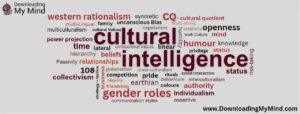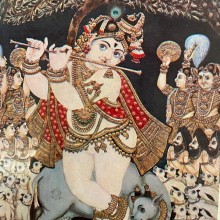
This blog will encompass stray and sundry revelations about the Indian civilisational character and mores. Just snippets, which make one aware of aspects of the Indian mind.
I Don’t Know
9 May 2024
“I don’t know” is a phrase rarely heard in India. This is unsurprising because Indians know everything, whatever the subject. Hence, Nirad Chaudhari’s incisive observation that the Hindu penchant for a ‘know it all’ attitude, often expressed volubly in high volume, makes Indians reek of arrogance.
It is a unique Indian trait. Test it: Ask for a direction, mention a health issue, touch on political developments, ask about a travel destination or whatever. The interlocutor will tell you all without bothering to check whether or not you are interested in the details or bothering to ask what you might think.. (One Joint Secretary visited Australia for a week, and then briefed us at the High Commission about Australian history, people and politics over lunch – without a single query to confirm his assessments.
An occasional corollary to this behaviour is to imperiously reject the ‘unknown’ as something that cannot be. If you mention something that does not fit the Indian’s knowledge or experience, s/he will not elicit curiosity about the matter but simply ward it off with a ‘no, no, that is not so’ or such.
I can unequivocally assert that diplomacy’s central tenet—patiently listening to obtain information—is most effectively practised in India. Of the 11 diplomatic postings, New Delhi was the easiest where to gather insights into subjects of interest.. My favourite tactic was to attend a round table lunch or dinner and (relentlessly) pursue a subject of interest with leading questions. Other diners rarely asked a question of me in return. Walking away, I always marvelled that none of them had exhibited any curiosity about me or what I thought. In effect, I knew about them, but I was unknown to them.
Haggling
22 July 2024
Here in Antara, I am currently selling personal possessions as I downsize my material existence. An obviously affluent and articulate, charming Indian couple surveyed the items on sale. They selected some, but, disconcertingly, throughout the lady kept alluding to gifts, complimentary prices, friends, etc. The whole was revealed when they had made the decision to buy four items, and she bluntly asked if I would give her a special discount.
I know the culture of haggling, its antecedents and expressions and practices from Beirut (by far the High Priest of this commercial approach), Tripoli, Central Asian and South-East Asian cities to India. However, this was totally unexpected from someone of their professional and personal backgrounds.
Frankly, I was furious. Contained me. I wish I had had the presence of mind to tell her that if she googled me, she would realise that I was no shopkeeper. She took my (negative) silence sportfully and without rancour. A pleasant parting followed but left a bad taste in my mouth.
Here is the CQ angle. Haggling in the Indian civilisational mind is partly a reflection of the inbuilt propensity for argumentation. (See Sen’s The Argumentative Indian.) There is a need for a win however peripheral and ephemeral. So one aspect marks the Indian mind whether it be the foreign policy or commercial deals: Indians know the immediate price, not the eventual value.
And that brings me to Oscar Wilde, who famously noted that most people know the price of everything but not their value. Indians are best at it; happy to take an eventual loss in favour of immediate price gain. I have been addressing this issue in CQ workshops for companies wishing to enter the Indian market for two decades.
I should have explained to her that I was transferring value as I measured it (intrinsic, emotional, history,), not selling it. And if that was not how she measured the item’s value of what she was buying, it was best not to buy at all. Asking for discounts betrays one’s ignorance of what gives satisfaction and what does not.
Analysing India
30 July 2024
I have argued elsewhere that one should never make judgements on India based on events or series of events. The only way to study India is to look at long-term trends. They represent the truth because they represent consensus. The Hindu way of life is to achieve consensus in political, economic and social issues. This takes time to achieve, but once achieved it is rock hard – for the simple reason that another meandering exercise will be required to achieve another consensus.
Thus, an understanding of Indian society and behaviour can only be achieved by analysing trends, not by making judgements based on discrete events. The Indian mind is individualistic. not collective. That means that individualism tugging any issue in its own direction, the only way forward is for a consensus to emerge.
This BJP+(rebellious) NCP alliance should be seen as reflecting the Indian civilisational value of inclusivity and accepting passively all that is the need of the moment. There is no centre in the lateral Indian mind. It is like a black hole in which the new developments swirl around until they become part of the Whole, full of contradictions.
Of course, it took only 72 hours for the dissolution of the BJP-Pawar nephew coalition. This only underlines the point above that Indian political developments must not be analysed in terms of events, but trends. And the trend here is: In this lateral Indian existence, there is no centre. (Hence, by the way, is why jughaad works!)



